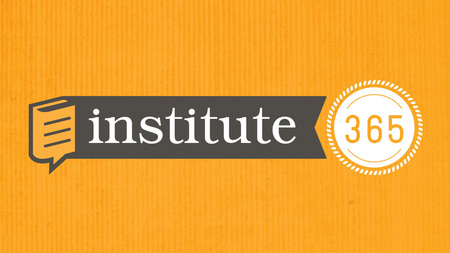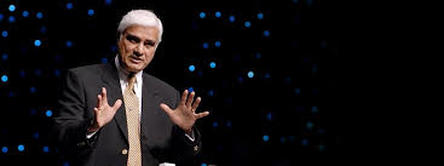It's Not Too Late! Our Highlight Reel of the Top 5 Blog Posts Each Month, for the Last 6 Months1/19/2019 Did you miss some of the most frequented posts at the Brookside Institute recently? It's not too late!
Based on the number of "hits" each month, here's our highlight reel of the top 5 posts here on the Brookside Institute blog for the last six months - July 2018 through December 2018. Take a minute to scroll through the list below, and either catch up on things you may have missed or revisit things that were especially helpful.
0 Comments
Looking for some of the best biblical and theological books to read in 2019? Below I've collected and listed five "sources" that are worth listening to for some worthwhile reads. My hope is that as you scan these lists, you'll find at least 2-3 books that strike your interest enough for you to pick up the book and dig in. Click on either the image or the title below and you'll be taken directly to a page where you can see which books are on that particular list. My Top 5 Reading Lists of 2018Interested in more?Below you'll find a few other links to related posts. Happy reading!
It's no exaggeration to say that Christianity stands or falls on Jesus' resurrection. If Jesus wasn't raised bodily from the dead, our faith is "useless" and "futile" (see 1 Corinthians 15:14 and 15:17-19). But if Jesus HAS been raised bodily from the dead...well, we'd better pay attention to Him. The Christian faith has meaning, our future has hope, and our mission matters.
So why is it credible to believe in Jesus' resurrection? Or even beyond that, why does it make the best sense of the evidence we have to believe that Jesus rose from the dead? Here are four lines of evidence that - when put together - build a strong case for the reliability of Jesus' resurrection.
As the Brookside Institute champions the value of biblical literacy, we don't do this in some abstract or indifferent way. We want to value biblical literacy so that we're transformed by the Bible.
If that's the case, that means there's a whole lot riding on whether the Bible is a trustworthy book. Some version of "Can I trust the Bible?" is being asked in lots of ways today, and so responding to this question is important. Here's why: The greater our confidence IN the Bible, the more we'll base our lives ON the Bible. We'll never base our lives on something we don't have confidence in. This last weekend, I spent about 30 minutes responding this question, "Can I trust the Bible?" Check out the video below to see what I said. Can I Trust The Bible? from Brookside Church on Vimeo. Interested in more on this? Check out the following posts:Based on the number of "hits" each month, here are the top 5 posts here on the Brookside Institute blog for the last six months - January 2017 through June 2017. Take a minute to scroll through the list below and either catch up on things you may have missed or revisit things that were especially helpful.
Based on the number of "hits" each month, here are the top 5 posts here on the Brookside Institute blog for the last six months - June 2016 through December 2016. Take a minute to scroll through the list below and either catch up on things you may have missed or revisit things that were especially helpful.
If you're new to the idea of Christian apologetics, this topic is basically talking about introducing and explaining Christianity to others who may have questions about or critiques of the Christian faith. In this sense, apologetics is best seen as a servant of evangelism - sharing the good news of what Jesus Christ accomplished and offers. 1 Peter 3:15 is a great biblical "go to" for the importance of apologetics: 15 But in your hearts revere Christ as Lord. Always be prepared to give an answer to everyone who asks you to give the reason for the hope that you have. But do this with gentleness and respect... (bold emphasis added). Obviously, explaining Christianity to others and answering their questions is a big category! (There are whole books written just on specific questions - like human origins, the existence of God, the problem of evil, the reliability of the Bible, etc.). And we don't want to give the impression that answering people's questions is ALL we need to be concerned with. Francis Schaeffer reminded us that the "ultimate apologetic" is Christians showing love.
With all that said, books on apologetics have their place and serve a valuable role. Here are 8 books on Christian apologetics I generally point people towards first. My challenge to you isn't to read all 8, but to choose the 1 or 2 that most resonate with you, and start there. Here are my recommendations. Click on either the pictures or titles below to be taken to an Amazon.com site where you can learn a bit more about any of these books. Last night, the Brookside Institute offered a seminar on "How We Got the Bible." About 50 people signed up for 90 minutes of overview on origins and preservation of the Bible - good stuff! The overarching goal of this seminar was to reinforce trust in the Bible (and its message!) by examining its origin and reliable preservation.
As the Institute seeks to build and reinforce foundations of the Christian faith in the areas of biblical literacy and theological formation, seminars like this play an important role. Below I've included some things that will give you a taste of the seminar. Here's the "Table of Contents" for what follows in this post if you keep scrolling:
If someone were to ask me, "What influences have helped you grow most along the path of Christian discipleship?" it wouldn't take me long to answer. Easily, one of my first responses would be "time in the Bible." And not just time in the Bible, but time getting to know the Bible (and its Author!); working to understand and apply its message.
I've talked with others, and have found many that say similar things. Knowing and loving and applying the Bible is that important! This is so much of why I value biblical engagement and theological formation like I do. And so as I work to help others get into God's Word in such a way that "God's Word gets into them," I understand that for people to spend time in the Bible, we sometimes need to help them first trust the Bible. We need to explain what the Bible is, and show all the great reasons we have to believe that this book is reliable. The Bible really is an authoritative word from God, that He graciously chose to convey through human authors. I believe this sort of understanding can reinforce motivation to get into the Bible for followers of Christ, and create motivation to get into the Bible for those who are seeking. All of this is why I'm so excited about an Institute seminar I'll be teaching on Thursday evening, September 29 on "How We Got the Bible." I recently ran across a 2009 article where Christian apologist, speaker and author Ravi Zacharias talks about "Defending Christianity in a Secular Culture." The whole thing is good, and I encourage you to read it.
In a few places throughout the article, Zacharias draws attention to the value of equipping the church, in the face of a secular culture that is increasingly hostile or indifferent towards Christianity. Below are some short quotes from the article where we see this: |
Tim WiebeChristian. Husband. Father. Pastor. Learner. Contributor. Reader. Categories
All
Archives
March 2024
|
© 2014-2024 | 11607 M Circle, Omaha NE, 68137 | www.thebrooksideinstitute.net
















 RSS Feed
RSS Feed
